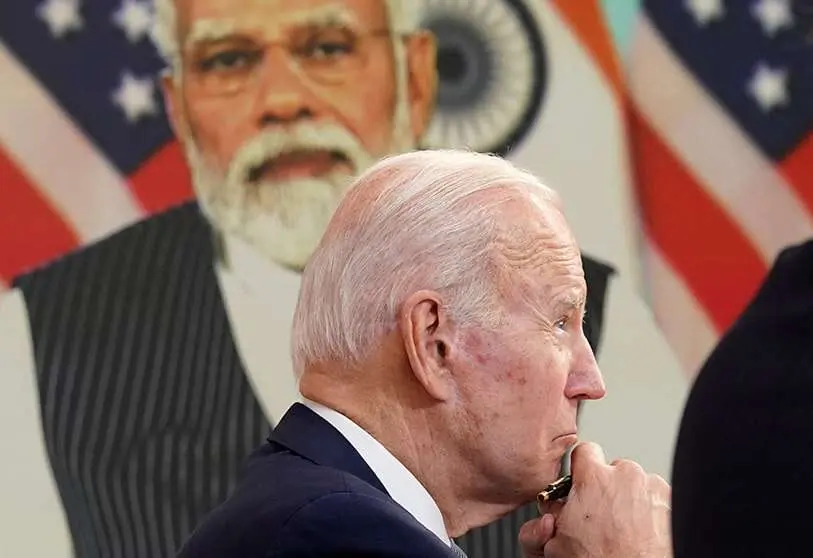The US is pressuring india to reduce russian oil sales, but avoids criticising its neutrality

US President Joe Biden held a video call with his Indian counterpart, Narendra Modi, on Monday to try to bring closer together positions in the midst of the conflict in Ukraine. The conversation, according to White House press secretary Jen Psaki, was "constructive and direct". Despite disagreements over the war, the relationship with India "is vitally important to the United States", Psaki said.
Biden, meanwhile, before the virtual meeting began, praised the "deep relationship" between the two countries and expressed a desire to continue "close consultations" amid the war in Ukraine, AFP reports. "The root of our alliance is a deep connection between our peoples, ties of family, friendship and shared values," he stressed.

On the other hand, the prime minister described the situation in Ukraine as "very worrying" and assured that India supports negotiations between Moscow and Kiev. During the conversation, Modi condemned the Bucha massacre and called for an independent investigation, although he did not directly name Russia.
The two leaders will meet face-to-face on 24 May in Tokyo at a summit of the Quadrilateral Security Dialogue, a military alliance that also includes Australia and Japan known as the Quad.

The video call between Biden and Modi preceded a 2+2 ministerial summit between Washington and New Delhi that included US Secretary of State Antony Blinken, Defence Secretary Lloyd Austin, and Indian Foreign and Defence Ministers Subrahmanyam Jaishankar and Rajnath Singh, respectively.

In addition to the war, Washington has tried to pressure New Delhi to cut back on Russian oil sales. "The president made it clear that he does not believe it is in India's interest to accelerate or increase imports of Russian energy and other commodities," Psaki said. In this regard, Jaishankar said the Russian fuel his country buys "is necessary for energy security".

The US has also assured its Asian partner that it can help it "diversify" its energy sources. "US imports are already significant, far greater than what they receive from Russia," Psaki stressed, adding that India is not violating US sanctions by importing Russian oil.
Moscow is a key economic partner for New Delhi, and Washington is aware of this. Russia is India's main arms supplier, which also imports oil, fertilisers and diamonds. Moreover, India exports pharmaceuticals, tea and coffee to Russia. Because of this, and because of India's importance to the US, Washington avoids criticising New Delhi's neutral role in the Ukrainian war.

Instead, the Biden administration is developing a strategy based on understanding and cordiality with India to prevent it from moving closer to Russia. This is completely different from its stance towards China, which also remains neutral in the conflict, trades with Russia and is reluctant to condemn the invasion.
"India has to make its own decisions in the face of this challenge," Blinken said of Delhi's position, avoiding criticising its neutrality and commercial ties with Moscow. In the same vein, Psaki said that "Indian leaders should be left to speak for themselves".

Washington and New Delhi have taken different paths since the Russian invasion began. The US has imposed tough sanctions on Russia while trying to isolate Moscow economically, pressuring its allies to halt purchases of Russian oil and gas.
India, for its part, has adopted a neutral stance since the war began. The Modi government has not condemned the Russian invasion and maintains its pre-war trade relations with Moscow. In early April, Russian Foreign Minister Sergei Lavrov even visited his counterpart in New Delhi, where he praised India's neutrality.

The US and India find themselves in disparate situations while pursuing completely different objectives. The war in Ukraine and the decisions taken by each country in the aftermath of the invasion have strained relations between the two countries. However, Washington and New Delhi also share common interests, such as curbing Beijing's expansion and influence in the region. India and China, despite attempts to normalise their ties, still have strong border tensions.
Americas Coordinator: José Antonio Sierra








